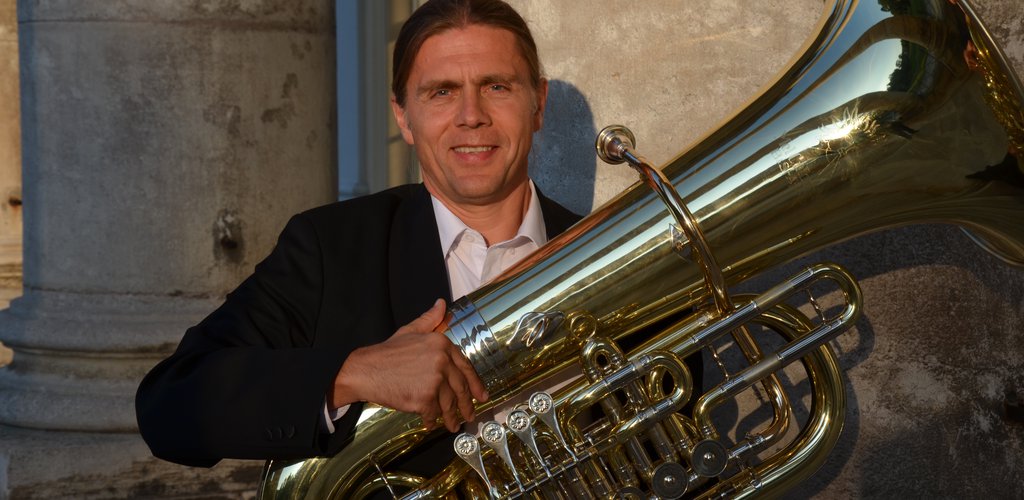Fine nuances, moving moments and pure beauty await those who turn out for the concert of the Budapest Festival Orchestra on 7 or 8 March at the Liszt Academy. Between a humorous Haydn symphony and an ingenious Mozart serenade, Valery Strukow’s tuba concerto will be like an explosion, featuring a solo performance by tuba player József Bazsinka – the first ever staging in this format in Hungary!
Valery Strukow’s name is not especially well known among Hungarian concertgoers. What can you tell us about him?
József Bazsinka: He was born in 1937, and attended the Academic Music College in Moscow from 1966, completing his university studies there. In addition to composition, he also obtained degrees in piano and musical science. He was considered a true polymath of the musical world – editing periodicals, publishing outstanding articles about the musical arts and holding lectures, while also translating literature. He primarily translated documents related to music; he is the one who translated Gershwin’s songs into Russian, for instance. And what is of particular interest to me is that the tuba was a key instrument in the musical pieces he composed.
Why don’t people know more about his oeuvre? It covered quite a long period of time and extended to so many genres.
J.B.: You’re right: Strukow did, indeed, leave behind a very colourful and multi-layered legacy when he passed away in 2005. I think he is significantly underrated, which is part of why it makes me so happy that I can perform his tuba concerto at the concert of the Budapest Festival Orchestra. To be honest, I don’t know why his name has not become better-known.
When did he compose his tuba concerto?
J.B.: In 1980. But don’t for a minute think this is some kind of cacophonic modern piece! It’s a beautiful, calm and rather more conservative work of music, easy to listen to. It is considered a very unique piece in how it uses the instrument over three and a half octaves; rarely is the tuba employed in a range exceeding two, or two and a half, octaves. The piece makes full use of all that the tuba has to offer: its sound, dynamism and volume, ranging from “super piano” to forte. The intensive nature and thickness of Russian life are very much apparent in this piece. It incorporates war, dictatorship and the memory of militarism – even if communism was already losing its harshness when the piece was composed. Compared to the time when it was written, the concerto recalls a more oppressive past, with its march-like atmosphere, evoking military uniforms.
How does this unique piece fit with the music of Haydn, fine, airy and filled with humour, and a piece by Mozart that is akin to a crown jewel?
J.B.: I think this is what will make the concert special. Between these two beautiful pieces, Strukow’s music will be a real explosion. But there is no reason to worry: our orchestra, and the diversity of our repertoire provide the perfect background for the concert’s line-up. I am sure it will result in a Eureka-like moment for the audience. The tuba concerto is – and this is not just my bias speaking – a beautiful piece of music. It includes so many fine nuances and moving, shocking details, and it clearly proves that the tuba is an instrument worthy of composing solo pieces for.
Does it make you excited, anxious or simply joyful to be performing as a soloist and to lead the Festival Orchestra?
J.B.: To be honest, I don’t feel a greater sense of excitement, because even when I’m just one of the orchestra’s members, getting ready for a concert, I feel the same anticipation as I do now, rehearsing for my solo. But the atmosphere of a concert is very different for a soloist, standing on the riser. I have actually been getting ready for this tuba concerto since November. To me, it is like holding a diamond in my hands: I polish more and more of its sides, and it becomes shinier by the day.
Come to the Liszt Academy on 7 or 8 March for our Haydn-Mozart Plus concerts!
